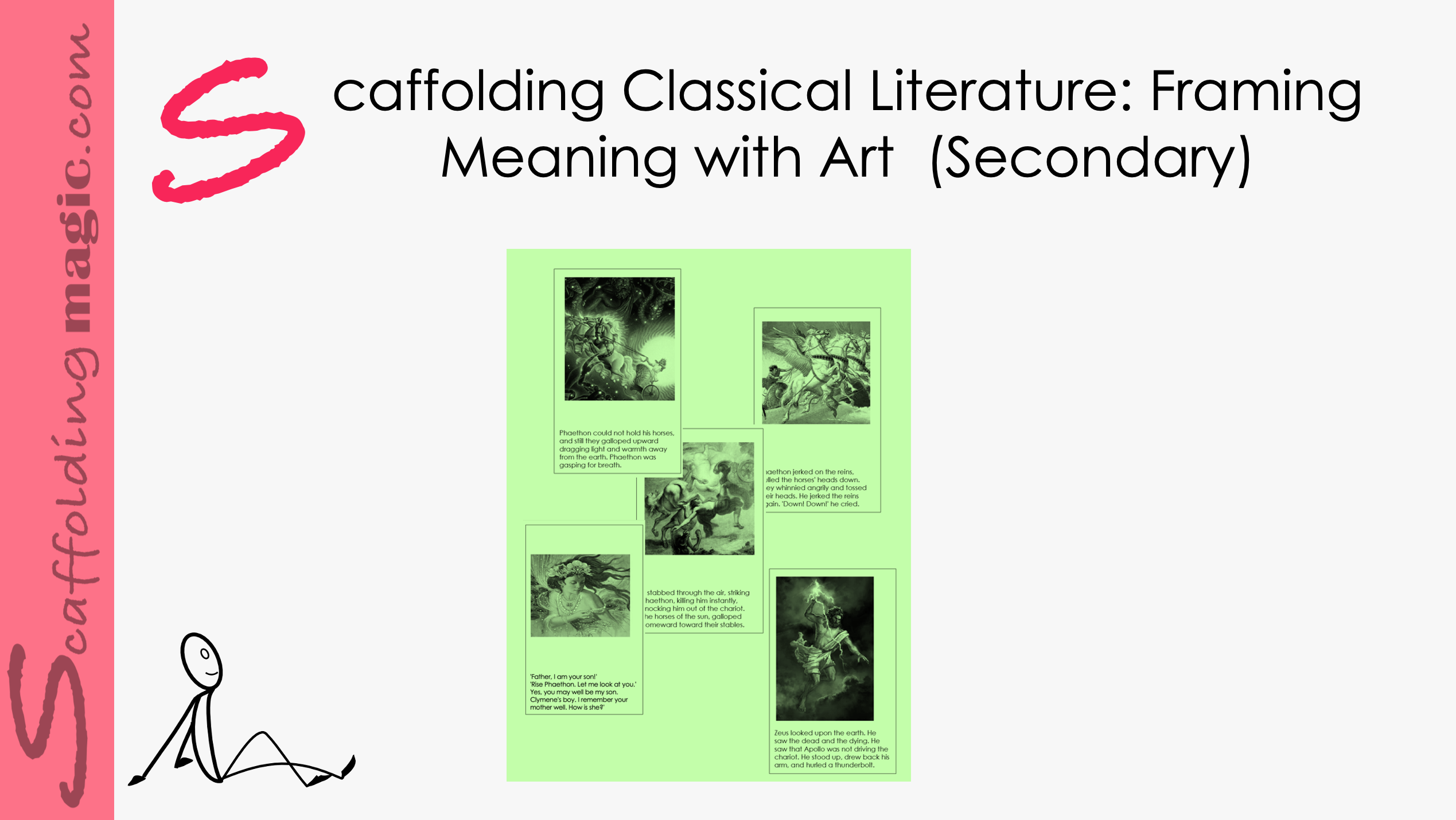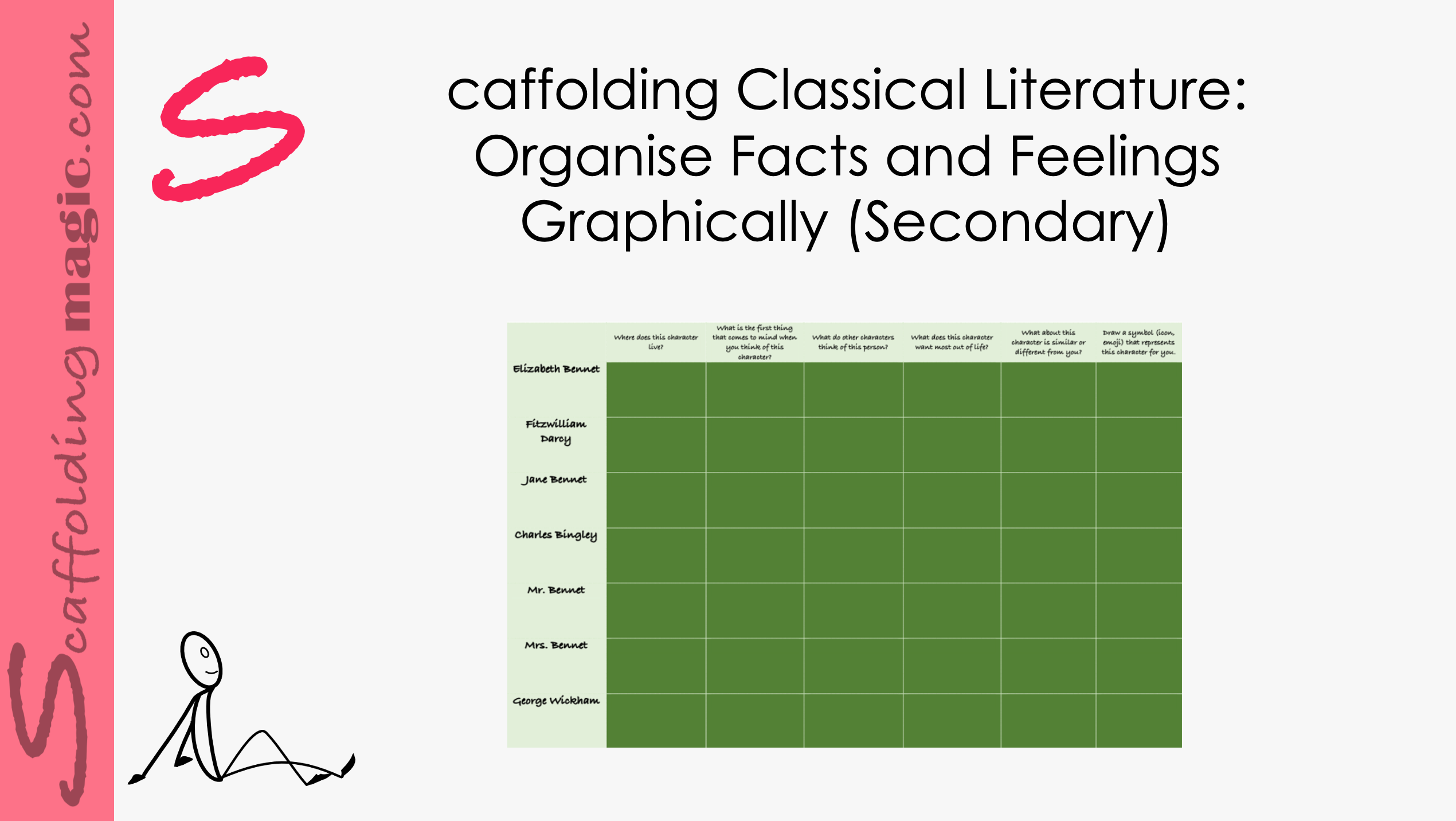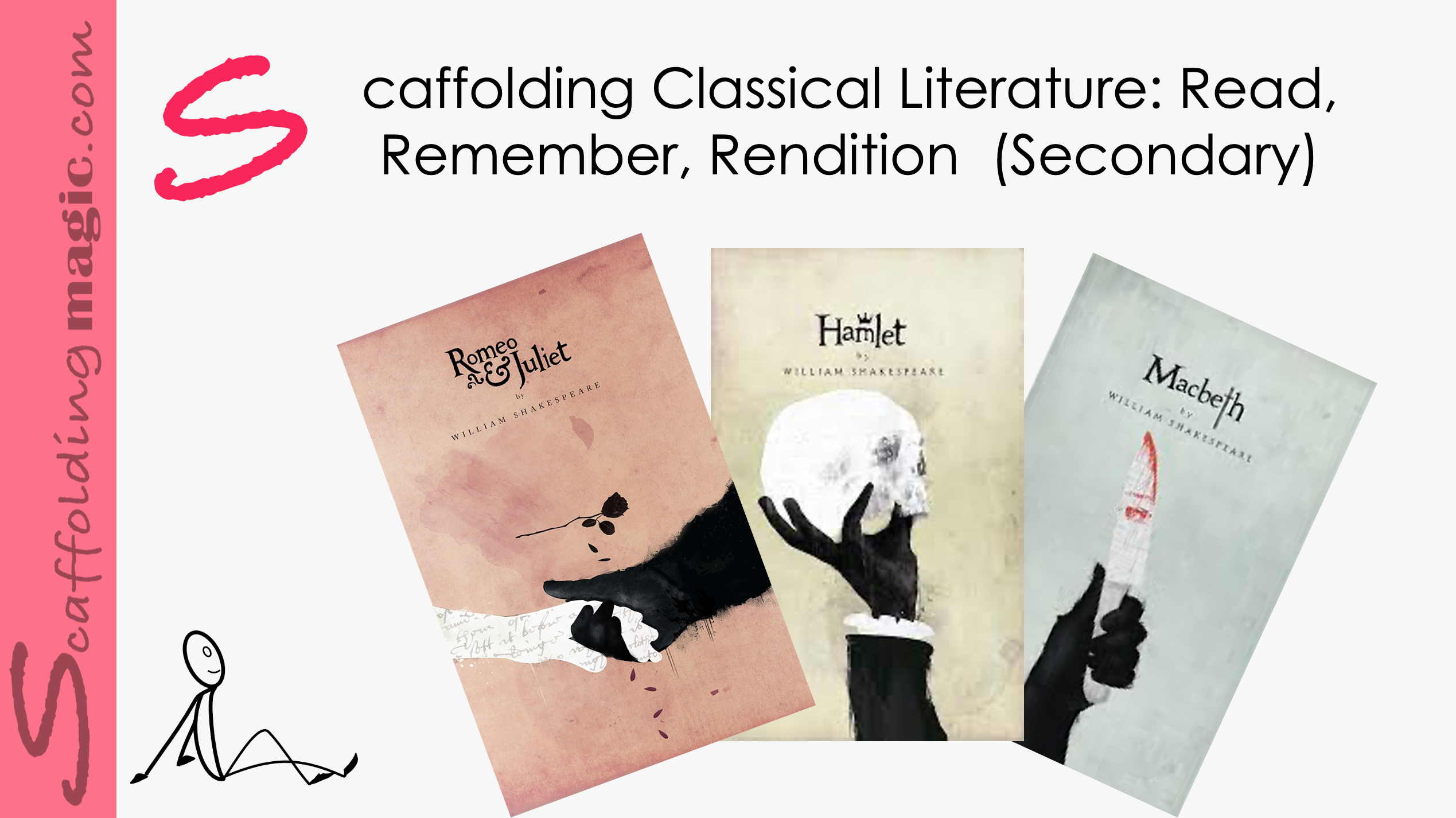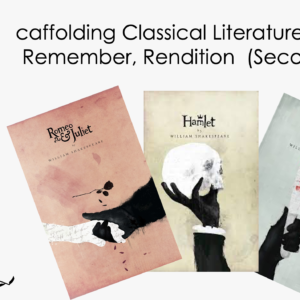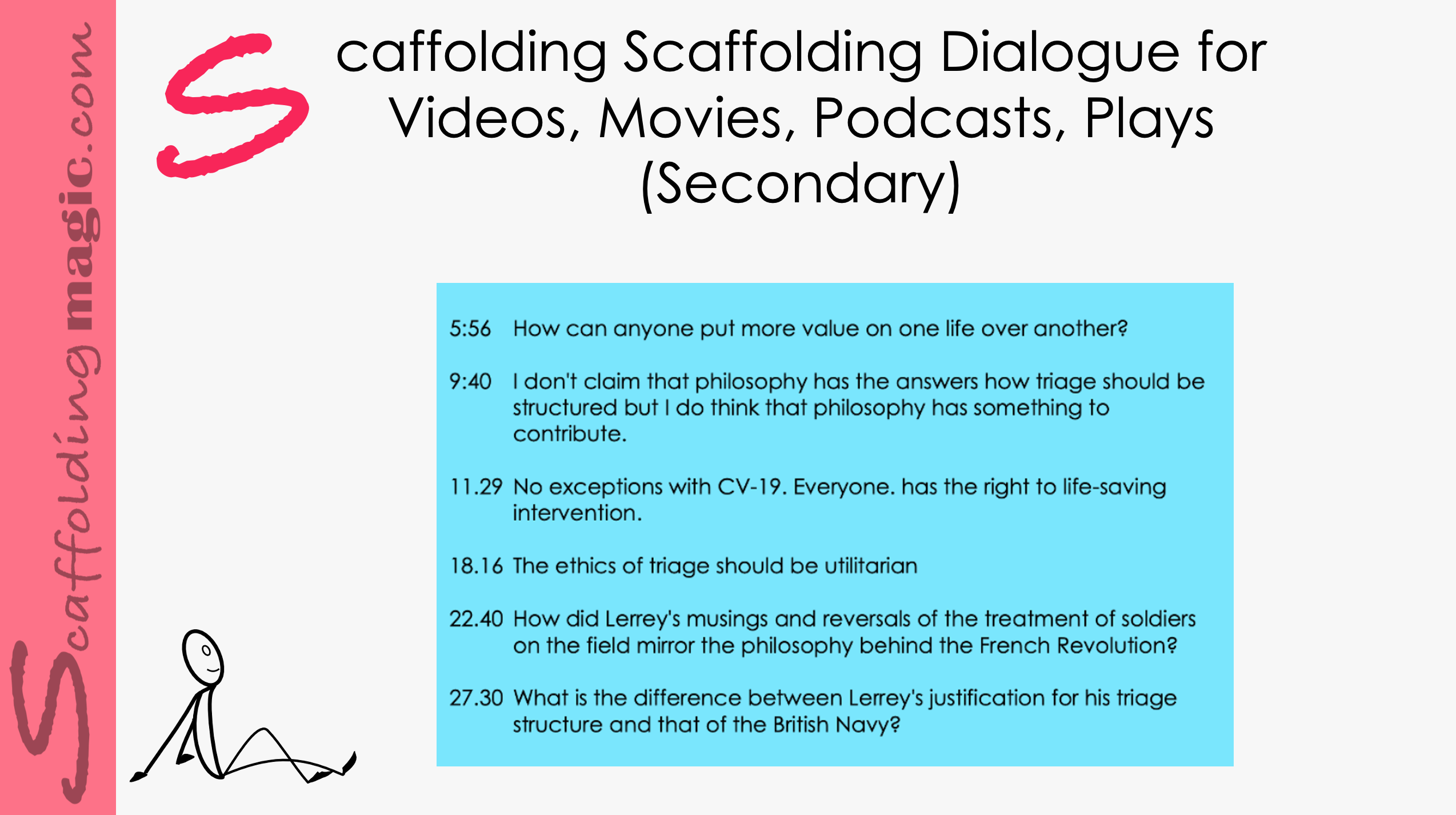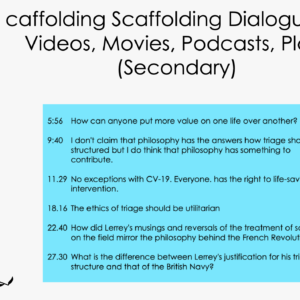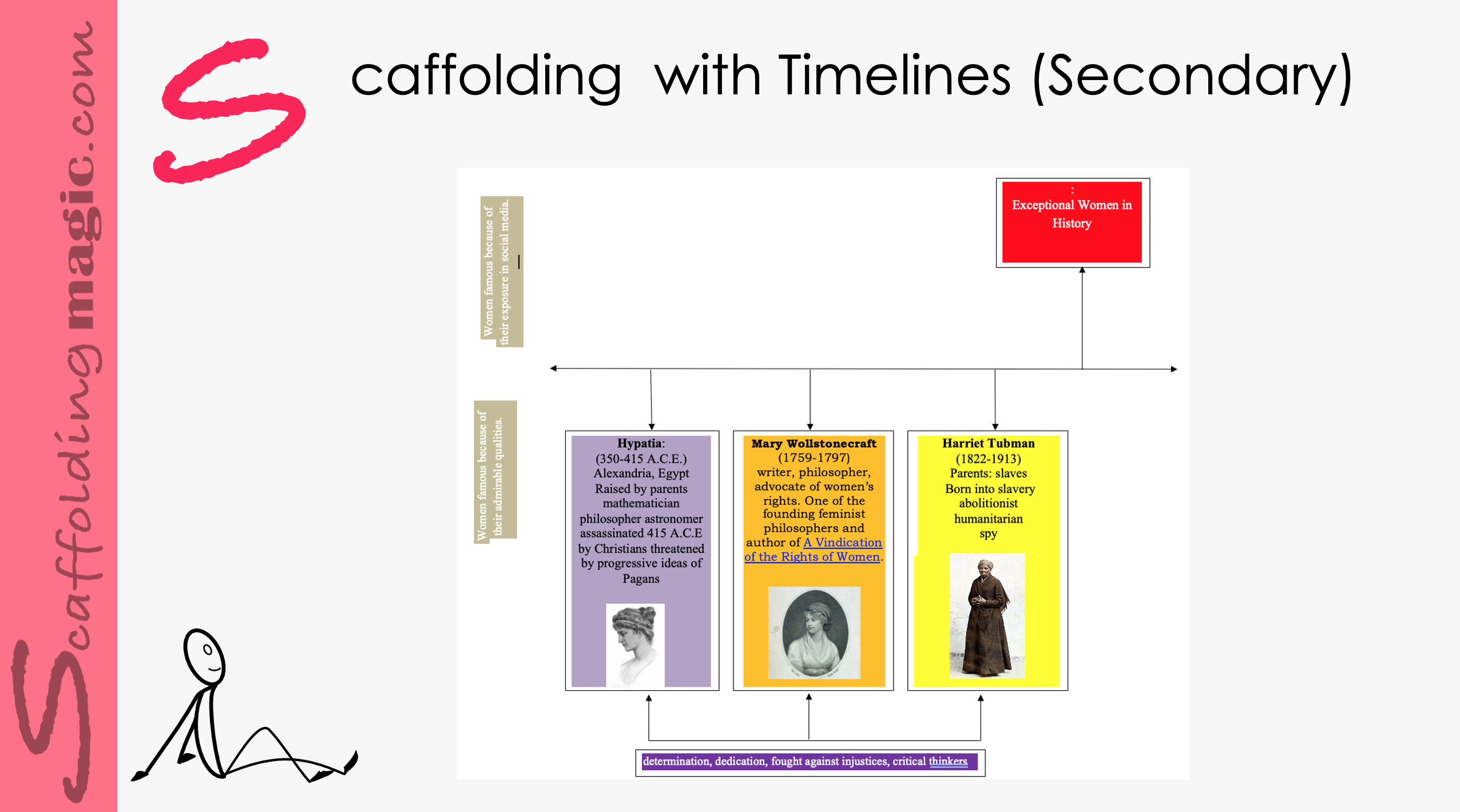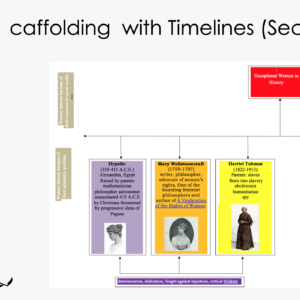Students are given artistic renditions of the story by documented artists with captions underneath in authentic language. They put the images in order according to what makes sense to them with regard to images and language. In the best practices of the Ethic of Excellence, in groups, they then exchange their artwork and analyse each other’s renditions.
Scaffolding Activity for Classic Literature 2: Framing Meaning with Art
$5.00
Students are given artistic renditions of the story by documented artists with captions underneath in authentic language. They put the images in order according to what makes sense to them with regard to images and language. In the best practices of the Ethic of Excellence, in groups, they then exchange their artwork and analyse each other’s renditions.
Related products
-
Secondary ScaffoldsQuick View
Scaffolding Activity for Classic Literature 4: Organise Facts and Feelings Graphically
$5.00 Add to cartRated 0 out of 5 -
Secondary ScaffoldsQuick View
Scaffolding Classical Literature: Read, Remember, Rendition
$5.00 Add to cartRated 0 out of 5 -
Secondary ScaffoldsQuick View
Scaffolding Dialogue for Videos, Movies, Podcasts, Plays (Secondary)
$5.00 Add to cartRated 0 out of 5 - Quick View
Scaffolding Activity for Classic Literature 4: Organise Facts and Feelings Graphically
Here is a scaffold that will help your students keep track of the many characters in the story. Aside from the facts and family trees which can help enormously in following the plot, the graph encourages the students to pay attention to personalities and actions so they can make connections to them and people in their own lives – a key in engaging our students.
Here is a scaffold that will help your students keep track of the many characters in the story. Aside from the facts and family trees which can help enormously in following the plot, the graph encourages the students to pay attention to personalities and actions so they can make connections to them and people in their own lives – a key in engaging our students.
Scaffolding Classical Literature: Read, Remember, Rendition
Through varied techniques, the reading of authentic classic literature is an incredibly enriching experience (although your students may not appreciate or admit this until years later!). Presented creatively, you may find that otherwise uninterested students will happily participate in activities that review/clarify details of the stories and so be able to interact with the literature more confidently.
This activity focuses on the purity of Shakespeare’s language. Let the students roll it around in their mouths and feel the strangeness and how satisfying it is when they can finally pronounce some of the dialogue.
Through varied techniques, the reading of authentic classic literature is an incredibly enriching experience (although your students may not appreciate or admit this until years later!). Presented creatively, you may find that otherwise uninterested students will happily participate in activities that review/clarify details of the stories and so be able to interact with the literature more confidently.
This activity focuses on the purity of Shakespeare’s language. Let the students roll it around in their mouths and feel the strangeness and how satisfying it is when they can finally pronounce some of the dialogue.
Scaffolding Dialogue for Videos, Movies, Podcasts, Plays (Secondary)
The ability to switch perspective is essential to learning in every domain. For those who follow Deepak Chopra and his deeply rooted scientific conclusions regarding the human condition, the more effort we make in seeing a situation through the perspective of someone we are offended by or disagree with, the more we heal on a cellular level – both emotionally and physically. Students are going to read chunks of dialogue taken from various tracks.
The ability to switch perspective is essential to learning in every domain. For those who follow Deepak Chopra and his deeply rooted scientific conclusions regarding the human condition, the more effort we make in seeing a situation through the perspective of someone we are offended by or disagree with, the more we heal on a cellular level – both emotionally and physically. Students are going to read chunks of dialogue taken from various tracks.
Scaffolding with Timelines (Secondary)
We can create timelines – or use ones that are offered in the Student Books – as effective tools our students can use to categorise new knowledge through different learning styles, thus encouraging the information to pass from short-term to long-term memory. **
Timelines are used when there is a definitive focus on the concept being studied. Using them, we create a particular question our students need to answer or some situation or event that they need to understand; we can also, of course, use a queries from their Student Books. Cooperative learning is recommended because, if a challenge arises in which one student is weak on linguistics while another is weak on visual clues, they can work together to transfer their respective weakness into strengths. Previously unsuccessful students can then become successful in making sense of, and will acquire a feeling of control over, the subject matter.
We can create timelines – or use ones that are offered in the Student Books – as effective tools our students can use to categorise new knowledge through different learning styles, thus encouraging the information to pass from short-term to long-term memory. **
Timelines are used when there is a definitive focus on the concept being studied. Using them, we create a particular question our students need to answer or some situation or event that they need to understand; we can also, of course, use a queries from their Student Books. Cooperative learning is recommended because, if a challenge arises in which one student is weak on linguistics while another is weak on visual clues, they can work together to transfer their respective weakness into strengths. Previously unsuccessful students can then become successful in making sense of, and will acquire a feeling of control over, the subject matter.

